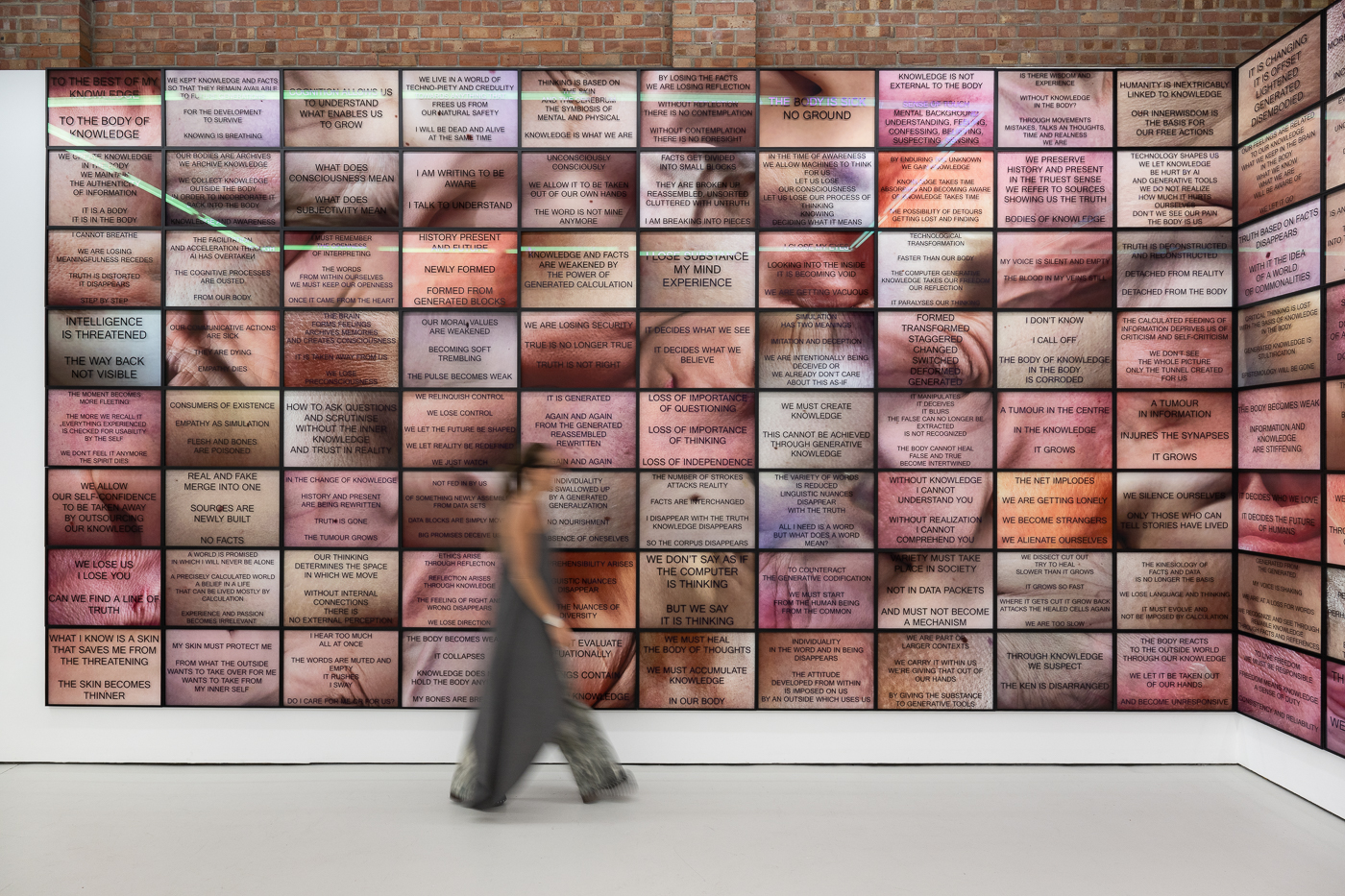FAD Magazine reports on Ai-Da Robot’s Design Museum exhibition of “‘selfies’ of a someone who doesn’t have a self.”
WORLD’S FIRST ULTRA-REALISTIC ROBOT ARTIST GETS DESIGN MUSEUM SHOW
By Mark Westall
The world’s first ultra-realistic AI robot artist, Ai-Da will be the subject of an exhibition at the Design Museum in London opening in May 2021.
Ai-Da is a life-size humanoid robot named after Ada Lovelace, the pioneering female scientist and mathematician. Completed in 2019, Ai-Da is designed with the capability to create art and uses AI algorithms to produce works that comment on the current and future uses of artificial intelligence.
The exhibition, Ai-Da Self Portraits turns the subject of self-portraiture on its head and questions the nature of human identity and creativity. Ai-Da’s work breaks new ground creating ‘selfies’ of a someone who doesn’t have a self.
The Exhibition has two world-first innovations; it will present three large scale self-portraits, the first ever made by an ultra-realistic robot, along with Ai-Da’s 3D printed face. It also has the world’s first AI font devised by an artist robot, to signify language produced by AI language models, raising discussion and ethical questions on the increasing lack of distinguishability between AI-generated text and human-created text.
Ai-Da is a composite persona, containing a wide range of different AI and computer programmes, robotics, silicone, and human influences and inputs. She was devised by Gallery Director Aidan Meller, with academic research by Researcher and Curator Lucy Seal, and she was made by Engineered Arts Ltd, and PhD students from the University of Oxford. The programming team are pioneering techniques in AI art to produce remarkable reflections on the use of AI and new technologies today.
Lucy Seal, Project Researcher and Curator for Ai-Da Robot, said:
“If Ai-Da does just one important thing, it would be to get us considering the confusion in human/machine relations, and encouraging us to think more carefully and more slowly about the choices we make for our future – there are clear advantages that need to be developed and celebrated, however, Orwell and Huxley’s cautionary messages still remain relevant and we would do well to take heed.”


